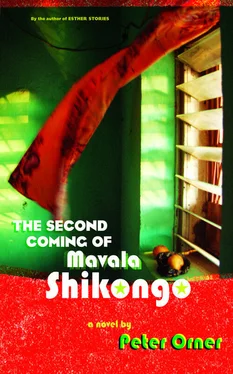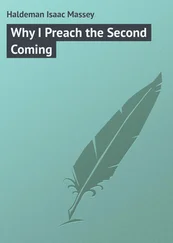Our fences, unlike Krieger’s gleaming razor wire (talk that he went out there and barbed it himself when he wasn’t busy running down children), were mostly patchworks made up of hubcaps, sheet metal, plywood, car parts, bedsprings, hammered barrel lids, plastic crates, bricks, goatskins, crushed cans, assorted broken furniture, and in spite of Theofilus’s constant repairs, they didn’t do much but lean away from the wind. Although the cows mostly stayed on the farm, any and all predators — jackals, baboons, hyenas, Kalahari foxes, our friends the dwarfed hedgehogs, leopards, carnivorous bush rabbits, warthogs, neighboring thieving farmhands — all were absolutely welcome at Goas. Our saddest fences, though, were the ones that didn’t even try. Those sections of fence line where the land dipped into dry tributaries and the fence couldn’t follow suit were called “flying fences,” the most useless man-made things in the universe. A bit of cordoned-off void, winging across nothing, the only true mascot of Goas.
Outside Goas church. After the funeral for Nicholas Kombumbi, Vilho and I sit across from each other on the benches that used to be part of the stolen picnic table. The table must have been a monster to lift. It was a solid slab of concrete. We imagine it is out in the veld somewhere, although nobody has come up with a satisfactory motive for taking it, other than to prove that if it’s stealable, Pohamba’s Standard Sevens will light the way. Vilho and I shuffle our best shoes in the sand. We’ve stopped trying to talk about it. The boy Nicholas was his. Not his best learner, but not his worst either, so he didn’t know him very well. Now he feels he failed the boy. The boy’s mediocrity was a mask that prevented Vilho from seeing an individual soul. Now he goes to his final reward unknown by the people entrusted to remember him. I have given up trying to talk him out of this. So here we sit. We watch the priest lock the door of the church. He greets us with a slow, solemn nod and disappears behind the tall rectory gate. A pair of goats wander by, their ribs protruding. Vilho is trying to remember a single thing about this boy. His body has already left for Karibib, followed by cars and bakkies loaded with relatives and friends. There’s a whistle in the late-afternoon wind. Vilho stops shuffling his feet and looks as though something has occurred to him. I watch his face tighten. Grief is useless without memory, yet he might be making progress. Everybody else has gone to sleep, or to Obadiah’s for a nip, then sleep.
Hot gray light, Christmas afternoon. Those who could have gone somewhere have. Antoinette and Obadiah to their kids in Windhoek. Festus and Dikeledi to her family in Gobabis. The principal and Miss Tuyeni to the north. By car, by lorry, by bakkie, by donkey cart — foot — people have fled. The farm is beyond quiet without the stampede. At night, with the boys asleep, all their breathing still made the place feel alive. Now we are walking around listening to the churn of our own feet in the sand. The wind’s relented. There’s no service. The priest has gone to say Mass at Otjimbingwe. We who’ve been left behind go on our own to church and sit in the silence, listening to the echoes of our own respectful coughs. Mavala chants softly: I am the resurrection and the life, saith the Lord; he that believeth in me, though he were dead, yet shall he live. Whosoever liveth and believeth in me shall never die .
I whisper, “Isn’t that what you say when someone dies? It’s Christmas.”
“Someone didn’t die?” She whispers back. “What about Vilho’s learner? What was his name?”
“Kombumbi.”
“Yes, Kombumbi. And others, so many others.” She leans forward and sinks her face in her hands.
And that was it, just Mavala, Tomo, me, Auntie, and Pohamba, who only went to church because the priest wasn’t there, and some boys who for whatever reason couldn’t make it home.
*
The church cool in the shadows in spite of the heat outside. A cement cavern with a roof that is also used to store feed and diesel-engine parts. A dusty gold cloth draped over the altar. There was no vestry, just that one room. A velvet robe hung on a nail. Nothing on the walls but a one-legged crucifixion dangling precariously above the altar. Occasionally Christ fell and Theofilus had to nail him back up. The strange thing was that it had been built to be a church. It wasn’t converted from something else, which would have given it some excuse. A piece of plastic covering a broken window flapped now and then in the feeble breeze.
Mavala didn’t play the organ. She only sang a little. Then she left early. Stood up, crossed herself, and walked out. She had to go to the dining hall to cook for the few boys who remained.
Pohamba and I made some spaghetti and sauce. Pohamba talked into the night about Christmas in Otavi, with his enormous family. He said there was sometimes so much family they had to rent a hall. Cold spaghetti is Christmas? How is it possible? I wondered why he hadn’t gone this year. The house up the road empty of the principal. I could feel my not going to her in my stomach, and his not wanting to be alone, practically demanding it, talking on about Christmas in Otavi, how this could not be Christmas. Music, dancing, roasted pigs, and beer.
“And liver, we always have liver on Christmas in Otavi.”
“Liver?”
“Why don’t you go to her?”
“It’s fine.”
“She’s alone on Christmas.”
“No, she’s got Tomo. It’s fine.”
Us by the fire late, until the heat gave out and the chill woke us up.
Part Three. AN ORDINARY DROUGHT
I’m a diversion,” I said.
“Did I say that?”
“A weigh station.”
“No.”
“A break in your action.”
“I said no.”
“An oasis.”
“Fine — you’re an oasis.”
“A pillow to lay your weary head.”
“Yes.”
“No, I’m a grave.”
“Grieta’s?”
“Yes, Grieta’s.”
“What did she die of?”
“Living here.”
“Yes!”
“And she starved.”
“Whites don’t starve.”
“That’s bullshit.”
“Name a white that’s starved.”
“The Irish. Jews. Russians. Poles when they weren’t killing Jews. Some Mormons. I am pretty sure some Mormons starved.”
“A round for Kaplansk! Whites suffer too! What else did she die of?”
“Spinsterhood.”
“She died of not having a man? That’s stupid.”
“There’s been documented cases. Look at your sister.”
“ Having a man is her problem.”
“Right, that’s true. But all he does is sweat over you.”
“What man doesn’t sweat over me?”
“Vilho.”
“Vilho doesn’t count.”
“Festus.”
“You think Festus would refuse me?”
“You’d sleep with Festus?”
“For ten thousand rand.”
“For ten thousand rand, I’d sleep with both of them.”
“Both who?”
“Dikeledi and Festus.”
“That’s because all you want is Dikeledi. To get her, you’d take Festus.”
“Festus would take up the whole bed. Anyway, forget Dikeledi. There’s only you. You.”
“Only me.”
Morning meeting slowly rising, and Pohamba pounds.
“I remembered something in my sleep,” he says.
Читать дальше












